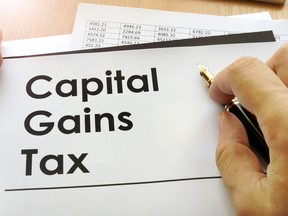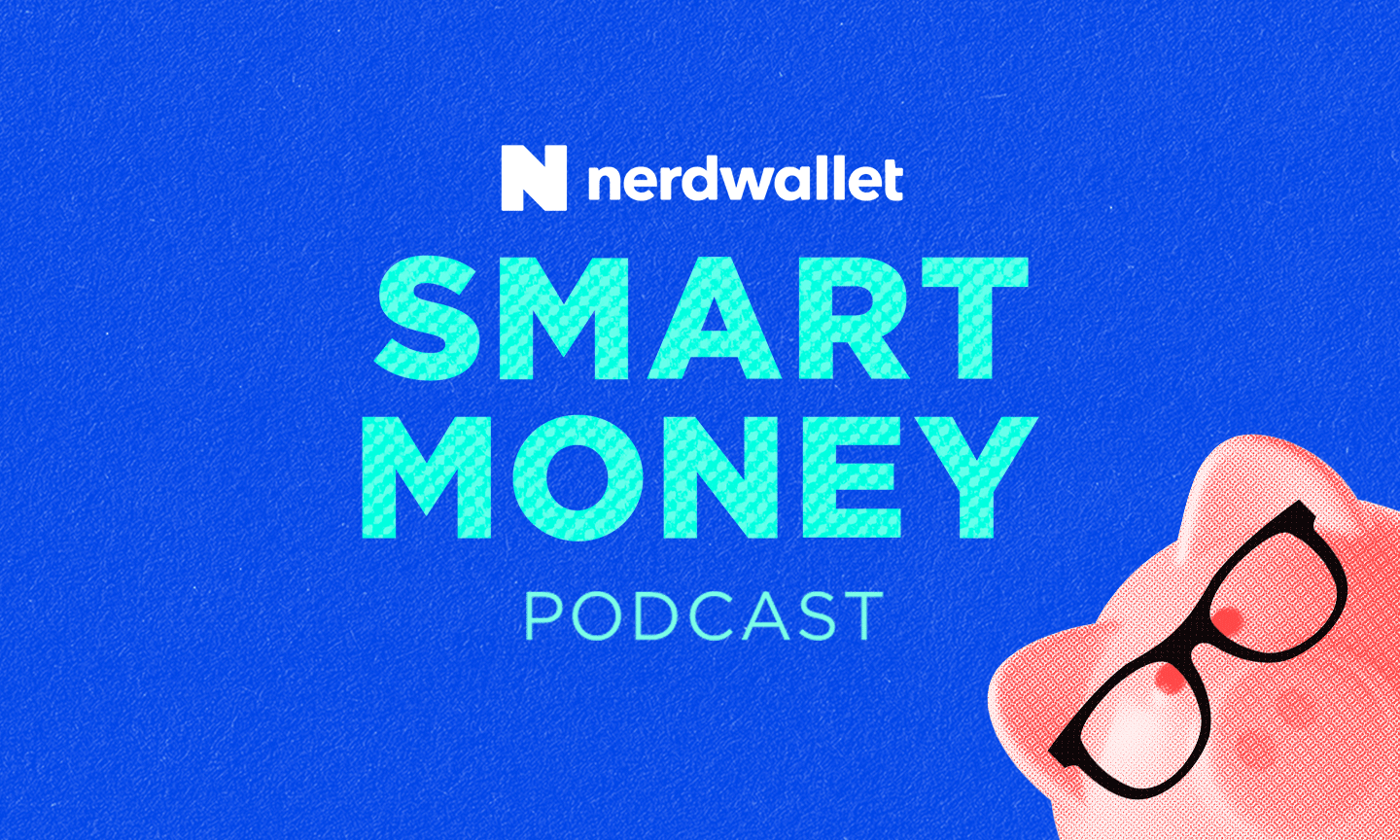This article may contain references to products or services from one or more of our advertisers or partners. We may receive compensation when you click on links to those products or services. Nonetheless, our opinions are our own.
Key Highlights
- Payday loans are short-term loans. They have high interest and are meant to be paid back by your next payday.
- Payday loans usually last from two to four weeks. This is different from installment loans, which come with a repayment plan.
- Installment loans require fixed monthly payments over a specific time.
- You might need collateral for secured installment loans, but payday loans typically do not need it.
- Be careful with payday loans. Their high interest rates can lead to a cycle of debt.
Introduction
In the financial world, one must grasp the distinctions among revolving credit, installment loans, and payday loans. This article will enable you to know more about payday loans. We will define them and walk over how you might apply for them. We will also go over additional choices you might give thought to. Whether your financial situation is temporary or you simply want to know your borrowing options, we will provide the information required to make good use of these financial instruments.
Understanding Payday Loans: An Introduction
Quite common are payday loans, sometimes referred to as cash advances. When one needs money quickly, many people find them simple to get. Payback times for regular loans are long; payday loans are made to be paid back fast. Usually, your following payday covers your return of them.
These are easy loans. You get a little loan without having to offer any collateral. Usually, this loan amounts just few hundred dollars. On your next payday, you pledge to pay back the whole loan amount, together with any fees and interest. Payday loans attract many people since they provide fast access to cash for either merely temporary extra money or for urgent needs.
The Basics of Payday Loans in the US
Nowadays, a frequent approach to borrow money is a payday loan. For those with a poor credit history especially, they are rather beneficial. One of the main reasons is typically their limited credit checks. This allows more people—even with poor credit—to obtain a payday loan. Payroll loans allow rapid access to cash, usually in only 24 hours, unlike bank loans that could take several days to obtain.
Payback of a payday loan is simple. Your following payday you have to pay back the whole amount. Unlike installment loans, which you pay back over several months or years, this short payback time is Remember too that payday loans can have more interest rates than other kinds of borrowing.
Payback loans depend much on state laws. Every state has policies including restrictions on loan quantities and interest rates. These regulations serve to guard against unethical lending practices. It is vital to know the laws in your state before applying for a payday loan. This will contribute to ensure a fair and transparent borrowing procedure.
How Payday Loans Differ from Other Types of Loans
Payday loans are not like credit cards and installment loans. These are temporary loans, hence their cost could be larger than others. With installment loans, you must wait some time as you pay back the money with monthly payments. Payback for payday loans, on the other hand, must be paid on your next payday, usually two to four weeks.
Different from other kinds of loans are credit cards. They create your credit line. This implies that you can make minimum payments and borrow up to a given limit. Payday loans, on the other hand, are handed as a lump payment. This indicates that, in terms of payback, payday loans offer less freedom than credit cards.
Payday loans have far higher interest rates than credit cards or personal loans. Payback rates (APRs) for payday loans can be several hundred percent annually. Payday loans are thus a somewhat expensive choice for borrowing money. Generally speaking, credit cards and installment loans have lower interest rates.
Exploring the Nature of Payday Loans
Examining the characteristics of a payday loan can help us determine whether it is an installment loan or a revolving one. Payday loans have some hints of both kinds. Still, they do not really fit either group. Making wise borrowing decisions depends on an awareness of these nuances.
Installment loans let you borrow a specific amount. You reimburse it over time in consistent payments. One excellent example is a car loan or a mortgage. On the other hand, revolving credit operates differently. Credit cards allow you a borrowing limit. Spending money, paying it back, then borrowing once again is how you operate. This keeps on as long as your account is active and in excellent shape.
Characteristics of Installment Loans
Installment loans have a stated payment schedule. For a given loan term, borrowers make set monthly payments. Their budget planning and view of their debt are easier when they follow this consistent timetable. Every payment lessens the loan balance and pays the interest.
These loans’ loan terms might range significantly in length. The lender, loan amount, and borrower’s credit score will all determine it. Usually, a shorter loan period results in bigger monthly payments. It also means, though, that you pay less overall interest. Although you will pay more interest over time, a longer loan period could produce less monthly payments.
Installment loans allow either fixed or variable interest rates. Fixed rates stay the same across the loan period. This guards borrowers from fluctuations in market rates and lets them know what to expect. Market trends affect the variable rates. The overall borrowing expenses may so rise.
Identifying Features of Revolving Credit
Revolving credit is akin to credit card use. It provides a credit line ranging up to a specific maximum. Regular loans have a set amount; revolving credit lets individuals borrow money as needed. They keep under the credit limit they possess.
Revolving credit helps customers conveniently manage their repayments, hence it is beneficial. Anytime they need, borrowers can decide how much credit they wish to use. They have to pay a minimum every month, based on their debt.
On a revolving account, credit changes with payments. This starts a cycle of borrowing and paying back-off. This option distinguishes revolving credit from loans. It helps with regular spending or periods when your borrowing requirements fluctuate.
Beginner’s Guide to Payday Loan Options
Getting a payday loan might be challenging, particularly if you are first-time borrower. It could seem like a simple approach to acquire fast money. Before you choose to get one, though, it is crucial to understand the application process, who can borrow, and the hazards associated.
Review your financial position closely before choosing a payday loan. Think on some additional options you might have. Furthermore crucial is knowledge of the loan terms and conditions. Smart borrowing is recognizing what might happen down road. Usually with hefty interest rates, payday loans run the danger of throwing you into a debt spiral.
Preparing to Apply for a Payday Loan: What You Need
Get your key paperwork ready before requesting a payday loan. Understanding your financial condition is also a smart idea. Payday lenders impose specific guidelines you must abide by, including:
Although history and credit score are crucial, they could not always be the only things that matter. While deciding, certain payday lenders review it. You might still be qualified for a payday loan even if your credit score is not great.
Usually, a payday loan requires a current checking account. Lenders utilize this account for payments taken back-off and money deposited.
Payday lenders want evidence of your income. This indicates that you are loan payback capable. You may offer bank statements, pay stubs, or other records proving a consistent income.
Step 1: Assessing Your Financial Situation
Before you choose to get a payday loan, look closely at your finances. Start by checking your income and expenses. Also, note any debts you may have. Consider if a payday loan, which often has a high annual percentage rate (APR), works for your budget.
- Watch the due date of the loan closely.
- Ensure your next paycheck will cover the loan repayment without hurting your key expenses.
- Keep in mind that if you don’t pay back a payday loan on time, you may face extra fees and end up in more debt.
If you use payday loans a lot or have trouble with your debts, it’s a good idea to find other choices. You should get help from a expert for financial advice. Consider speaking to a credit counselor or using resources from the Consumer Financial Protection Bureau. They can help you manage your difficult money issues.
Step 2: Understanding Payday Loan Terms and Conditions
Before you sign a payday loan agreement, read and understand all the rules. Focus on the repayment term. This part tells you how long you must pay back the loan. It usually lasts from two weeks to four weeks.
Know the interest rates and finance charges related to the loan. Payday loans often have high interest rates. These can be shown as a fixed fee or a percentage of the amount you borrow. The costs can increase quickly. This means that the total amount you pay back can be much more than what you initially borrowed.
Check your loan agreement carefully for any extra fees. These can include late payment fees, rollover fees, or nonsufficient funds fees. Knowing all costs tied to the payday loan is important. This will help you make a good choice when borrowing and keep you from facing unexpected money problems.
Deciphering the Differences: Installment vs. Revolving Loans
When you explore borrowing options, it’s good to understand the main differences between installment loans and revolving loans. These two types of loans serve different purposes and each has its own benefits and challenges, depending on your needs.
Installment loans allow you to borrow a specific amount of money. You will pay back this money in set payments over a certain period. This way of paying is easy to understand, which helps you make your budget. Installment loans are useful for large purchases or combining debt.
Revolving loans, like credit cards, give you a certain credit line. This means you can use the money when you need it, which allows for more flexibility. You can pay back the money and use your available credit again. This type of loan is helpful for regular bills or unexpected costs.
Key Distinctions Between Installment and Revolving Loans
The loan amount distinguishes revolving loans from installment loans in a major way. Installment loans offer a big sum all at once. This is a fixed sum; it does not vary. By contrast, revolving loans have a credit limit. You can thus take money out as needed and borrow just up to that amount.
Their impact on your credit use ratio is still another major difference. This ratio shows your credit usage relative to your whole credit availability. With revolving loans, using a lot of your current credit could lower your score. Conversely, installment loans typically have less effect on your credit use.
Your approach of returning these debts differs. Installment loans let you pay predictable monthly payments. These payments address the interest as well as the principle. This approach lets you readily see your debt pay-off strategy. Rotating loans, on the other hand, let you pay minimum monthly dues. This increases your adaptability. On the other hand, poor management of it may cause gradually increasing interest rates.
Why It Matters: The Impact on Your Financial Health
One should be aware of the variations between revolving and installment loans. Knowing this enables you to make wise financial decisions and keep a decent credit report. Your credit report reveals your borrowing and payback pattern. Your financial situation is much affected by this.
Correct use of revolving credit is absolutely vital. Try to keep your credit use ratio small. Pay consistently on schedule. This contributes to a strong credit history development. Your credit score may suffer if you rely overly on revolving credit or miss payments. Higher interest rates on further loans could follow from this. You could possibly be denied a loan as well.
Understanding installment and revolving loans can enable you to choose your borrowing better. This will prevent too much debt and enable you to properly handle your money. It can also enable you lay a firm basis for a safe financial future.
Usually speaking, obtaining a payday loan is easier than obtaining a bank loan. Still, you must provide particular documentation and follow particular guidelines. One payday lender can have different criteria than another. To borrow properly, one must be aware of the eligibility regulations, the documentation required, and the hazards associated with payday loans.
Credit checks and approval for bank loans sometimes take time. Payday lenders, on the other hand, have simpler guidelines. This serves those with bad credit. Still, there is a price for this convenience. Usually with payday loans, interest rates and costs are greater.
Consider how truly needed the money is before you apply for a payday loan. Think also about the financial issues it might cause going forward. Search for other options including credit union payday alternative loans. About payment plans, you could also discuss with your creditors.
Eligibility Criteria for Payday Loans in 2024-2025
While each payday lender might have different rules, and the state regulations may vary, there are some common requirements that you can expect.
- Age Requirement: Most payday lenders want you to be at least 18 years old. This is to make sure you can legally agree to the loan and understand your duties related to it.
- Credit Score: Payday lenders often have looser rules about credit scores. This helps people with poor credit or no credit history get a loan. However, some lenders may still check your credit score as part of their review.
- Social Security Number: Payday lenders usually need a valid Social Security number. This helps them confirm who you are and stop fraud. They also use this number to report your loan repayment history to credit bureaus, which can impact your credit score.
Documents and Information Required
To make it easier to apply for a payday loan, you should gather all the necessary documents first. Payday lenders typically ask for the following:
- You need a valid and active checking account.
- Lenders will use this account to put the loan money in.
- They will also take repayments from it.
- Proof of Income: Lenders want to feel sure that you can repay the loan. They usually ask for pay stubs, bank statements, or other documents that show you have a reliable income.
Identity Verification: Payday lenders want to prevent fraud. So, they usually ask for a government photo ID. This can be a driver’s license or a passport. It helps to confirm who you are and makes sure your application is real.
Conclusion
Knowing the differences between revolving and installment payday loans is crucial in the end. This knowledge guides your wise financial selections. Your credit score and financial situation can suffer depending on the kind of loan you choose. Understanding loan terms and your financial situation will help you negotiate the payday loan market more successfully.
Recall to borrow sensibly. Before deciding on a payday loan, go over all your alternatives. Keep educated, consider your needs, and choose a course of action that advances your long-term financial situation. See financial experts for guidance whether you have questions or require assistance.
Frequently Asked Questions
Are payday loans more like installment or revolving loans?
Payday loans are different from regular installment loans and revolving loans. They are fast loans for a short period. You must pay them back all at once. Unlike revolving credit, they do not provide a credit line. They also lack a set plan for repayment, which is common with installment loans.
Can I get a payday loan with bad credit in the US?
Yes, you can usually find payday lenders willing to assist people with bad credit. A lot of them do not perform hard checks with major credit bureaus. But, keep in mind that this does not always mean you will get approved.
What are the alternatives to payday loans if I need quick cash?
- Think about getting payday alternative loans from credit unions.
- Check out small personal loans from online lenders.
- Consider using cash advance apps.
- You could borrow money from a family member.
How do payday loans affect my credit score?
Payday loans usually do not appear on credit reports from the major credit bureaus. But if you miss a payment or do not pay a payday loan that ends up in collections, it can damage your credit score.
Is it possible to refinance a payday loan into an installment loan?
Some lenders might let you change a payday loan into an installment loan. An installment loan often has a longer time to pay it back and can have lower interest rates. Be sure to read the loan agreements closely. It’s vital to compare different offers to find the best terms for you.
Is a payday loan considered an installment or revolving type of loan?
A payday loan is different from an installment loan or a revolving loan. It is a short-term loan. You must pay it back in one lump sum. This payment is usually due on your next payday.
What are the key differences between installment and revolving payday loans?
Payday loans are unlike “installment” or “revolving” loans. They are short-term. You pay back a set amount all at once. This is different from regular loans, which you pay back in parts over time.
How does the payment structure differ between installment and revolving payday loans?
“Installment” and “revolving” payday loans are terms you don’t often hear in this industry. Typically, payday loans need just one payment. This payment is a lump sum that must be paid on a certain date. Usually, this date is the borrower’s next payday.
Are there specific advantages to choosing an installment payday loan over a revolving one?
It is difficult to compare installment payday loans and revolving payday loans. This is because they are not typical loans. Instead of checking the benefits as you would with normal loans, it is better to focus on the terms and conditions of each payday loan available.
Reviewed and edited by Albert Fang
Did you like our article and find it insightful? We encourage sharing the article link with family and friends to benefit as well – better yet, sharing on social media. Thank you for the support! 🍉
Article Title: Is a Payday Loan Installment or Revolving? Key Differences in 2024-2025
https://fangwallet.com/2024/11/17/is-a-payday-loan-installment-or-revolving/The FangWallet Promise
FangWallet is an editorially independent resource – founded on breaking down challenging financial concepts for anyone to understand since 2014. While we adhere to editorial integrity, note that this post may contain references to products from our partners.
The FangWallet promise is always to have your best interest in mind and be transparent and honest about the financial picture.
Editorial Disclaimer: The editorial content on this page is not provided by any of the companies mentioned. The opinions expressed here are the author’s alone.
The content of this website is for informational purposes only and does not represent investment advice, or an offer or solicitation to buy or sell any security, investment, or product. Investors are encouraged to do their own due diligence, and, if necessary, consult professional advising before making any investment decisions. Investing involves a high degree of risk, and financial losses may occur including the potential loss of principal.
Advertiser Disclosure: This article may contain references to products or services from one or more of our advertisers or partners. We may receive compensation when you click on links to those products or services.
Write for Us



















Discussion about this post